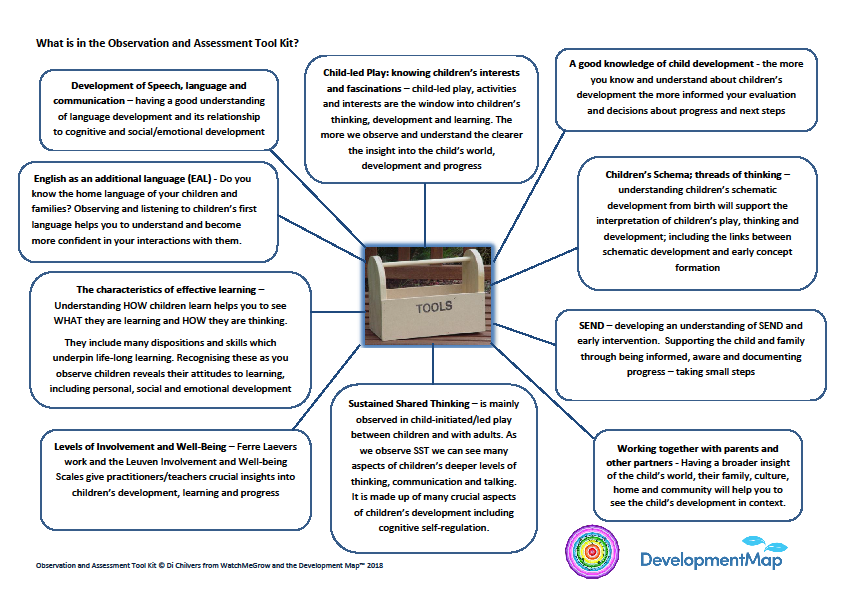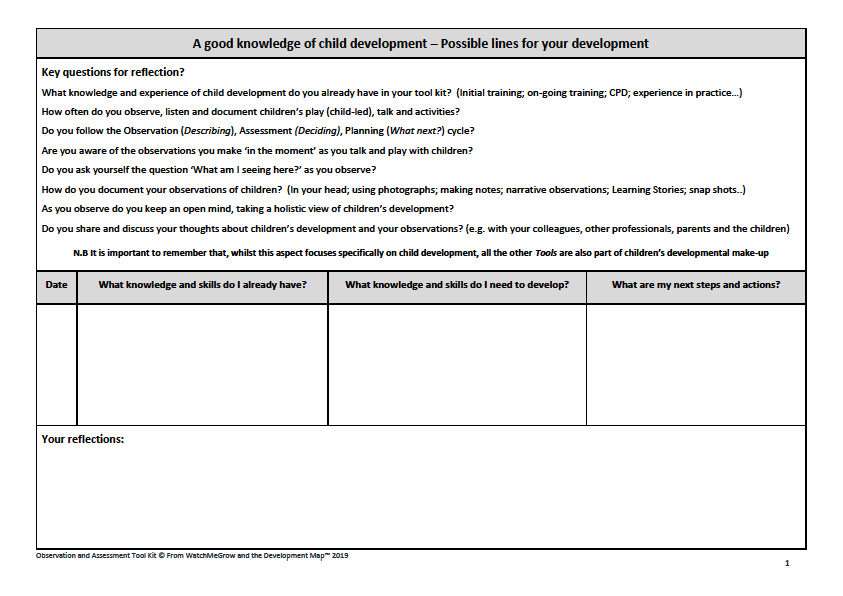It is about broadening and deepening what you know about children’s development; the different ways in which young children learn; how you tune into children and listen to their voices; and how you perfect your skills as an observer, evaluator and ‘mapper’ of children’s learning journeys. It means that you draw on and think about many other aspects of children’s development, not just guidance documents such as Development Matters, and use this to inform and strengthen the decisions you make about their progress (Assessment). Development Matters is just one of the tools to refer to as it gives some possible examples of the progression of children’s development however there are also many other tools that will ensure that the assessments you make are accurate and robust.
The more you know about children’s development the stronger you will be in your practice as your observation toolkit skills will ensure that you are informed, confident and precise in articulating the holistic developmental progress of young children. It’s all about making your assessments work for children and for yourselves and bringing the joy back into observation.
The starting point of children's development and learning is good observation
In 1926 Susan Isaacs was the great pioneer of child development and observations which are a treat to read. She said…
It cannot, of course, be very easy for us to gain a clear idea of what the world is like to a very young child, just because it must be so different from our own. But by patient listening to the talk of even little children, and watching what they do, with the one purpose of understanding them, we can imaginatively feel their fears and angers, their bewilderments and triumphs; we can wish their wishes, see their pictures and think their thoughts.
(Isaacs, 1929 p.15)
Watching (observing) children gives us a real insight into their lives; their thinking; their emotions and their unique personalities. It is our window into their development and our invitation to play alongside, joining in as a play partner, a co-constructor and as a teacher.
Susan Isaacs recognised this, observed and documented the child’s world.

The Observation Tool Kit Includes:
- Guidance on Observation, Assessment and making professionally informed decisions about children's learning and progress
- Individual self-evaluation to reflect on own knowledge, skills and understanding and fine tune professional skills.
- The Observation and Assessment continuum a whole team/setting/school self-evaluation
- Moderation – good practice
- Using White Boards – to support observation, assessment and planning
- 101 Uses of learning Stories
- Examples for practice and things to think about
- THE TOOLKIT PAGES: Possible Lines of Development for each Tool – Training and CPD in each of the areas of the Tool Kit;
- Development of speech, language and communication
- A good knowledge of child development
- Sustained Shared Thinking
- The Characteristics of Effective Learning
- Sustained Shared Thinking
- Involvement Levels
- Well-Being
- Children’s Schema: threads of thinking
- PLAY: understanding the complexities of children’s play, interests and fascinations
- SEND
- Working together with parents/carers
Example of a Toolkit page


